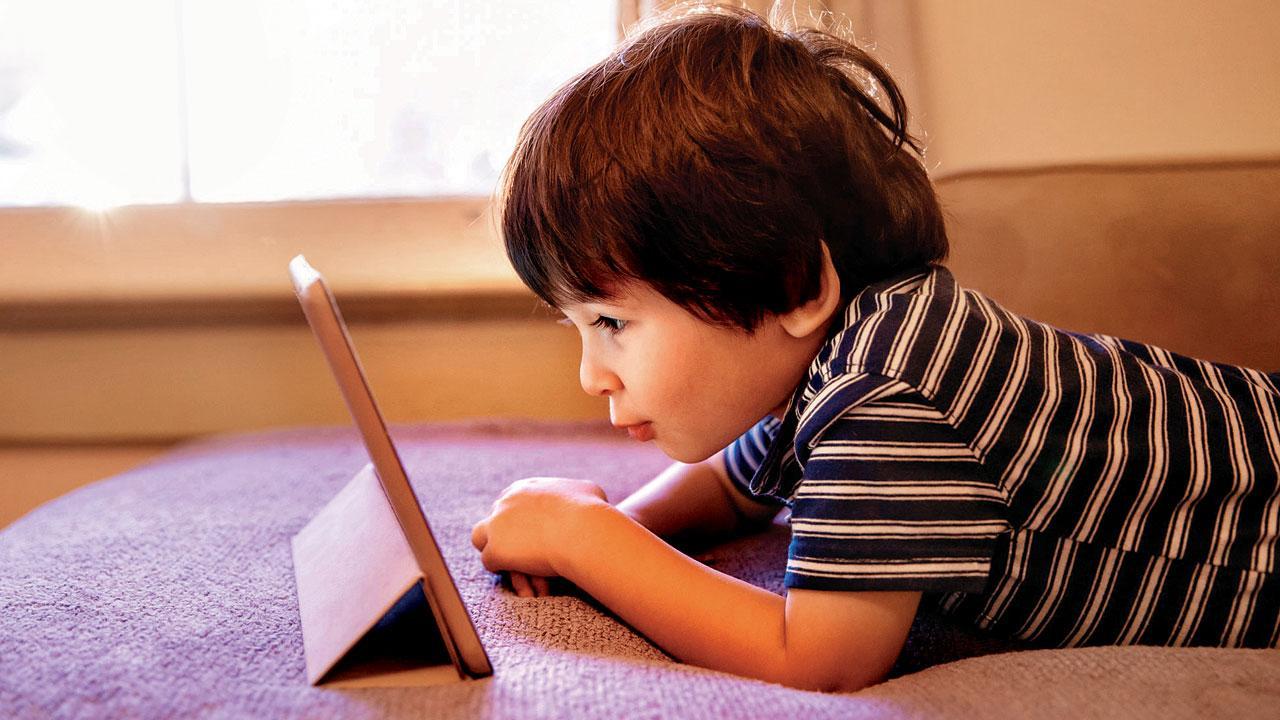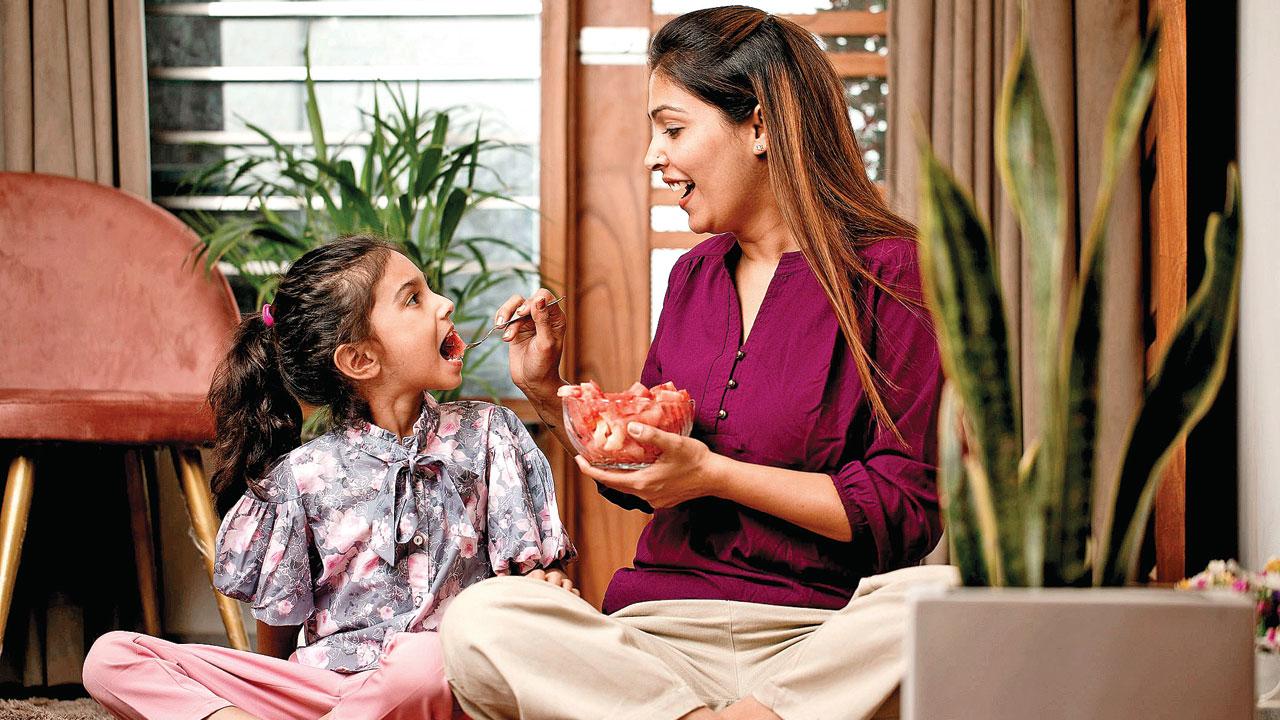As a recent video of a child mistaking food for a smartphone goes viral, two child psychologists decode ways for parents to limit phone use and list red flags to watch out for

Representation Pic
Recently, industrialist Anand Mahindra shared a video of a child holding up a food item to their ear like a smartphone. Mahindra jested that the phone now precedes basic needs such as food, clothing, and shelter. On the one hand, people can argue that the toddler should be given some credit for using imagination, while on the other hand, it raises the question of increased smartphone use among children. Limiting screen time might prove beneficial for everyone, children and adults alike. While adults have, or should muster up, the determination to trade screen time in for something more restful or productive, children need a little more guidance. Two child psychologists note the harmful impact of phone use at a young age and decode ways to wean your child off the device.

Ditch gadgets during meal time to bond with your child and teach them to enjoy their meal
Combat screen time
Payal Narang, child psychologist and mom influencer, @playfulparenthood, lists the downside of the excessive use of digital devices and technology on kids from its detrimental impact on and delays in physical and mental development, hindered social skills, and screen addiction. Prachi Srivastava, child and adolescent psychologist further details that an increased use of the smartphone or computer results in longer hours spent in the digital world and less time with people. This results in isolation and a lack of confidence in communication and interaction. It also leaves kids with no real-life role models; instead, they have online friends whose identity is disguised.

Play group games or watch family shows to avoid isolation and introduce a human connection
“Spending excessive time on the phone will result in poor concentration, constant need for stimulation, and increased boredom. Children will find it difficult to sustain tasks and thoughts. They develop a lack of focus and kids might want to give up before a task is completed,” Srivastava notes and continues that the overuse of digital devices also creates a fear of performance. Kids want to imitate what is shown in videos, images, games, and television. This directly affects their creativity and critical thinking skills due to a lack of experiential learning. Lastly, it also leads to poor fine and gross motor skills when children refuse to create with their hands — writing, colouring, or playing outdoors. This impacts their physical health as well, she points out.
Build human connections
However, can technology and the use of digital devices be incorporated positively or prove beneficial? Narang suggests it can, provided we keep these tips in mind. “Make sure screen time is limited. The Centers for Disease Control and Prevention in the United States of America suggests avoiding screens until the age of two years; post that it can be limited to 60 minutes a day. In my personal opinion, kids between the ages of two and five should not get more than 30 minutes a day.” She highlights the importance of age-appropriate content, as well as ensuring that the content is not overstimulating in terms of pace and colour. “You can use a radio or a smart speaker instead of screens. I make playlists for my child to enjoy.”

To this end, Srivastava recommends sharing a single gadget for playing group or family games, or watching shows and listening to music together. This builds and strengthens the human connection rather than a digital connection. It would also prove beneficial to children with special needs in using technology for educational requirements, too.
Replace the gadget
For parents looking to restrict the use of digital devices during meals and playtime, Srivastava notes, “There is no substitute for the presence or involvement of parents. They need to give time to their children, and cannot depend on digital gadgets. Gadgets don’t make parenting easy. They only add to the problem.”

Narang adds, “Instead of allowing phone usage during meal, play, or study times, set a fixed time on your kids’ schedule for devices. This way, kids won’t ask for it during the rest of the day, and they know when to look forward to this fixed time. A predictable schedule is always better and helps to prevent tantrums.” Narang also suggests teaching children to focus on and enjoy their food during meal times. “You can also use this time to bond with your child and create conversations,” she remarks.
Spot these red flags
>> Screen addiction: Kids become dependent on screen time to get through the day
>> Changes in behaviour: Reduced social interaction
>> Disruptions in their sleep patterns
>> A steady decline in a child’s academic performance
>> Increased mood swings and irritability
- Payal Narang
Meal time fun
>> Play age-appropriate verbal games like I Spy or Name Place Animal Thing
>> Chat with your child about their day, likes or discuss a book they recently read
>> Turn your daily meal time into story time
>> Use this time to check in with your child on how they’re feeling and exchange thoughts
 Subscribe today by clicking the link and stay updated with the latest news!" Click here!
Subscribe today by clicking the link and stay updated with the latest news!" Click here!










